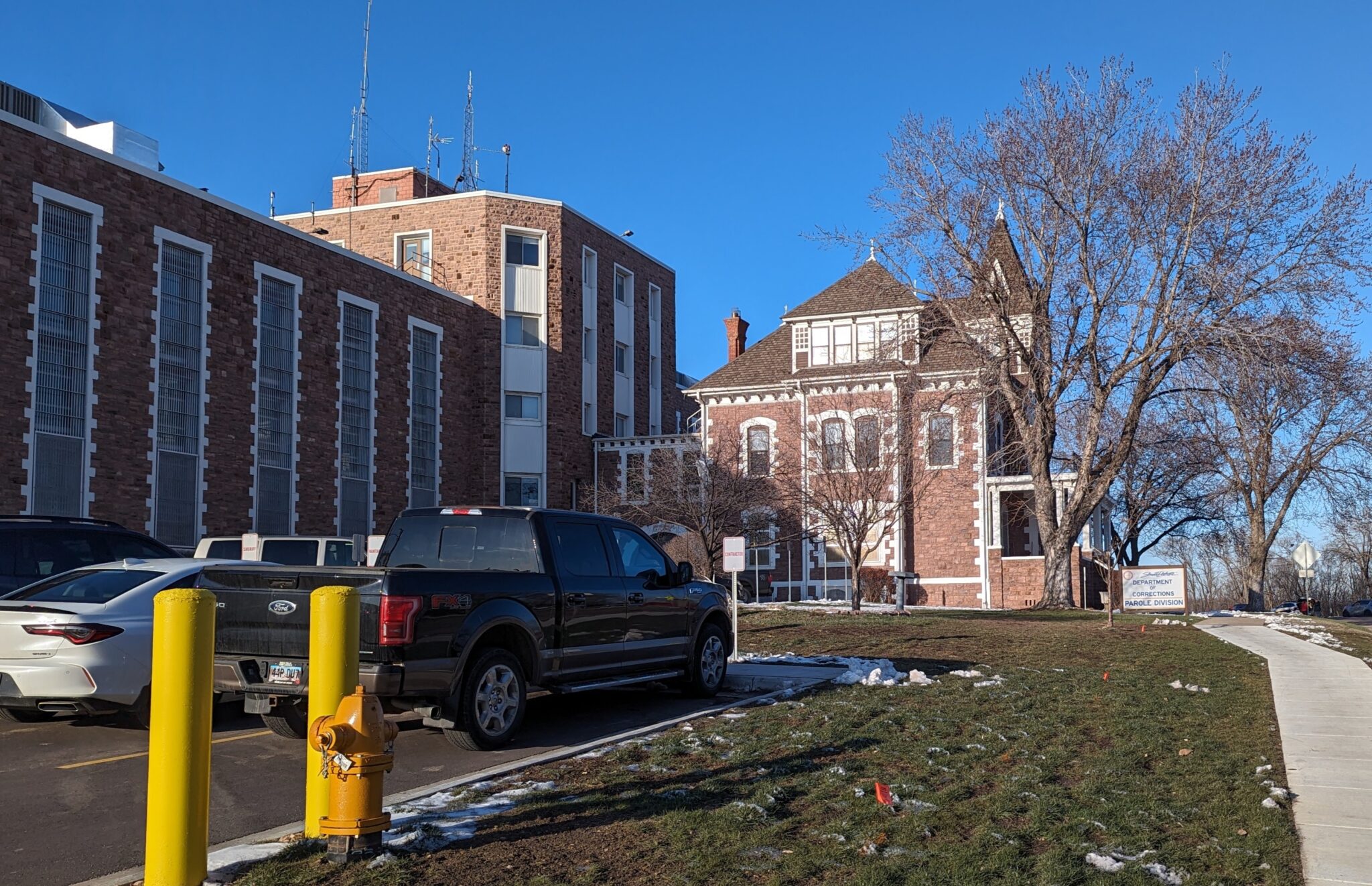
John Hult/South Dakota Searchlight
One week after inking a second commutation in as many months for a person convicted of murder, Gov. Kristi Noem denied sentence reduction requests for two men serving time on theft charges.
Noem sent the denial letters Wednesday to 78-year-old Elmos Hopkins and 46-year-old James Pasek.
Hopkins picked up two five-year sentences for grand theft and one 50-year sentence for burglary in Lincoln County in 2012. His initial parole date is set for August of 2037.
Pasek was sentenced to life in prison as a habitual thief in 2003 based on an armed robbery conviction in Lawrence County and multiple previous grand theft convictions.
The two letters are among eight clemency denial letters signed this year by Noem’s office. Over the summer, she denied a commutation request from Edward Flad, serving time for a Brown County child pornography conviction. It’s the second time Noem has denied clemency for Flad.
Each denial came in response to a clemency recommendation by the state’s Board of Pardons and Paroles. The board reviews requests for commutations, which reduce a current inmate’s sentence, and for pardons, which clear old charges from a person’s record entirely. If a majority of its nine members vote to recommend clemency, the recommendation heads to the governor’s desk.
Under the South Dakota Constitution, only the governor can issue pardons or commutations.
Noem has signed 17 denial letters for pardons and commutations since taking office, according to her office’s response to multiple public records requests throughout 2024.
Her first commutation denial letter was sent in March of 2022 to John Proctor, who killed the stepson of his lover in Meade County in 1972. In July of this year, Noem issued Proctor a commutation.
On Aug. 21, Noem signed a commutation for Renee Eckes, who is in prison for murder in the 1998 death of David Bauman of Watertown.
On Wednesday, the governor signed an updated version of that commutation, provided to South Dakota Searchlight by the South Dakota Secretary of State’s Office. Unlike the commutation for Eckes signed last week, the Wednesday version notes that Eckes’ separate five-year forgery sentence will now run concurrent with her sentence for murder, which has been reduced from life to 45 years. Eckes will be eligible for parole in September of 2027 on the murder charge. The adjustment to the forgery sentence in her new commutation means she will be able to request parole at that time, and not five years later.
The governor’s office did not immediately respond to a request for a comment on the change to Eckes’ commutation or on the denials issued over the summer.
